If you live in Florida, then using a heat pump is a great way to keep your home cool in the summer and warm in the winter. But if you are thinking about getting a heat pump system for your home, you may want to know how long they last. Let's take a look at the average life expectancy of a heat pump when used in Florida.
On average, you can expect a heat pump to last 10-20 years in Florida. However, you will need to maintain it properly in order to ensure that it lasts as long as possible. In addition, getting the right size heat pump for your home is important for its longevity.
Like any heating and cooling system, you want your heat pump to last as long as possible. In this article, we will discuss the lifespan of a heat pump in Florida and the factors that affect it. In addition, we will answer other frequently asked questions about heat pumps, so read on!
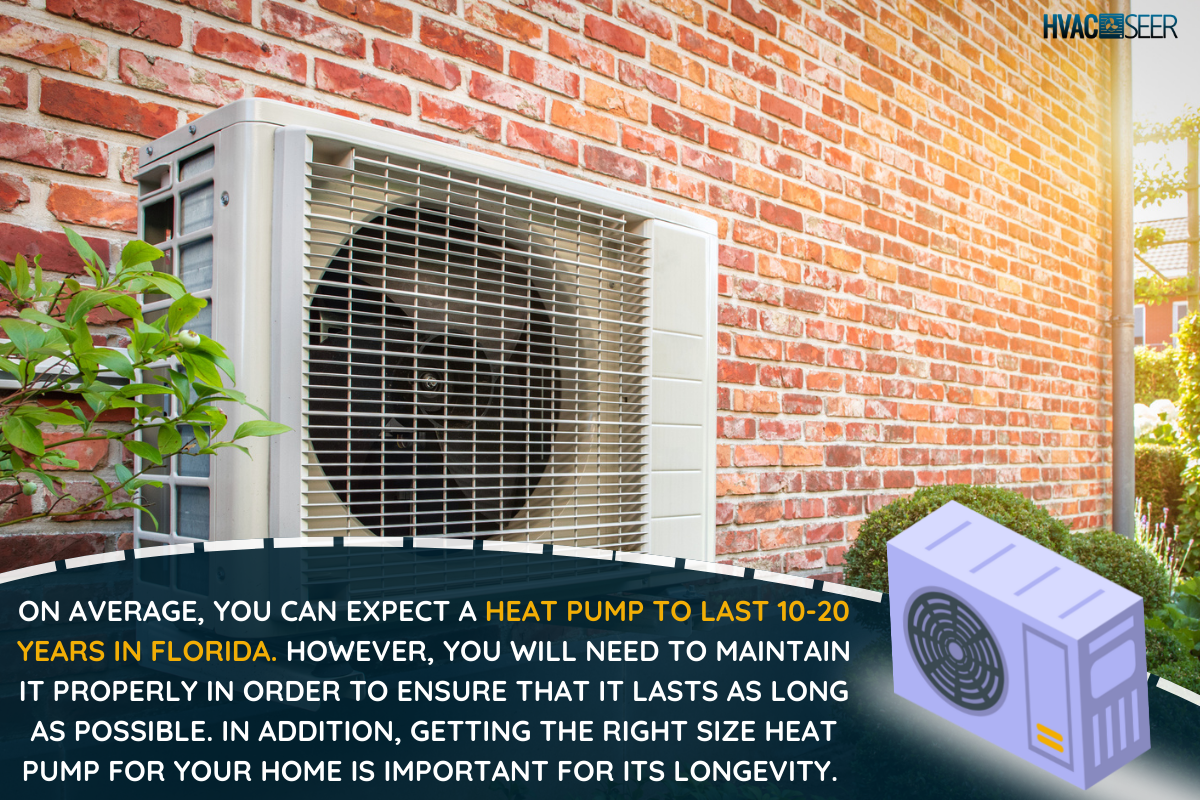
What Is The Lifespan Of A Heat Pump In Florida?
Heat pumps are an ideal choice for many Florida residents. Heat pumps work by transferring heat from one place to another, which means they can be used for both heating and cooling. In the summer, heat pumps transfer heat from your home to the outdoors, and in the winter, they do the reverse.
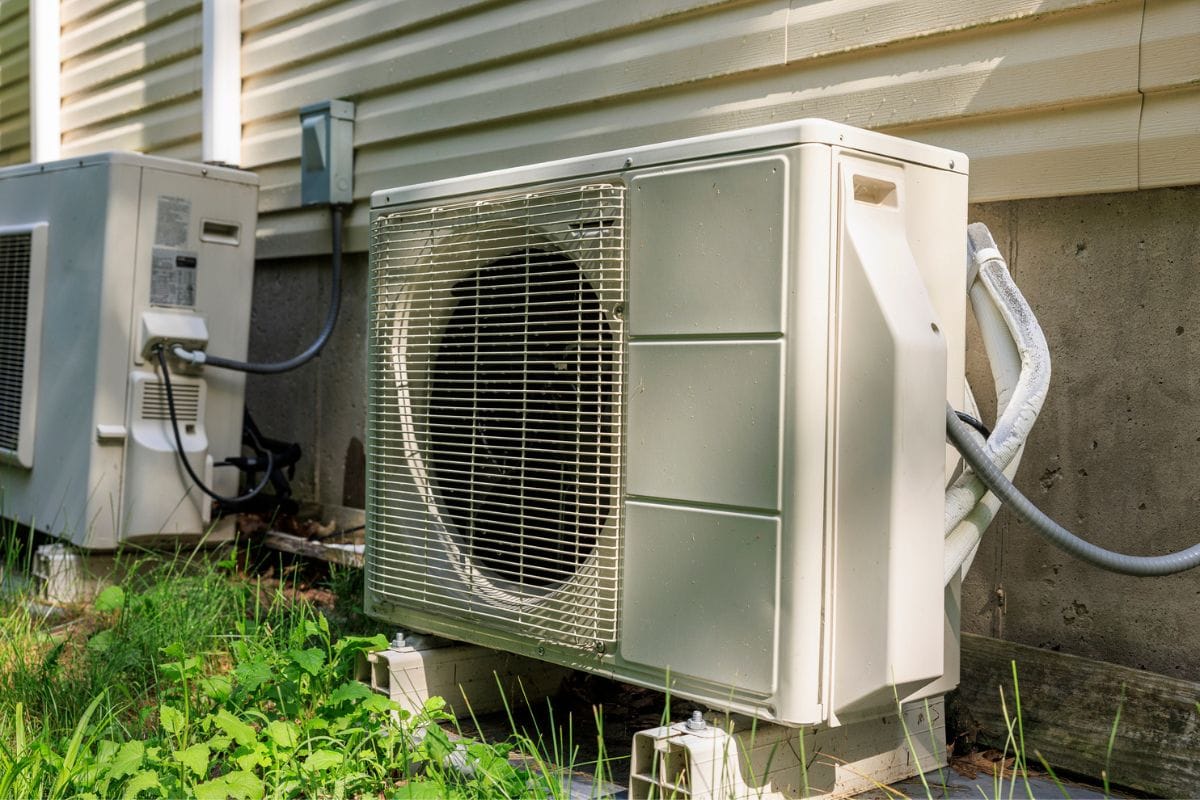
In other words, during hot days in Florida (which there are a lot of), a heat pump will remove the heat from your home and release it into the air outside. At the same time, the air from the home passes through the heat pump and is cooled down.
While Florida has few cold days, a heat pump can also be used to heat your home on those occasions. In this case, the heat pump will transfer heat from the air outside and bring it into your home.
The intriguing part about heat pumps is that they don’t create heat, they only move it. This makes them very efficient and can help you save money on your energy bills.
This is why so many Florida residents choose to use heat pumps in their homes. But how long do these systems last?
On average, you can expect a heat pump to last 10-20 years in Florida. However, there are some factors that will determine how long yours lasts. Let's take a look at vital things you should know in order to prolong the lifespan of your heat pump.
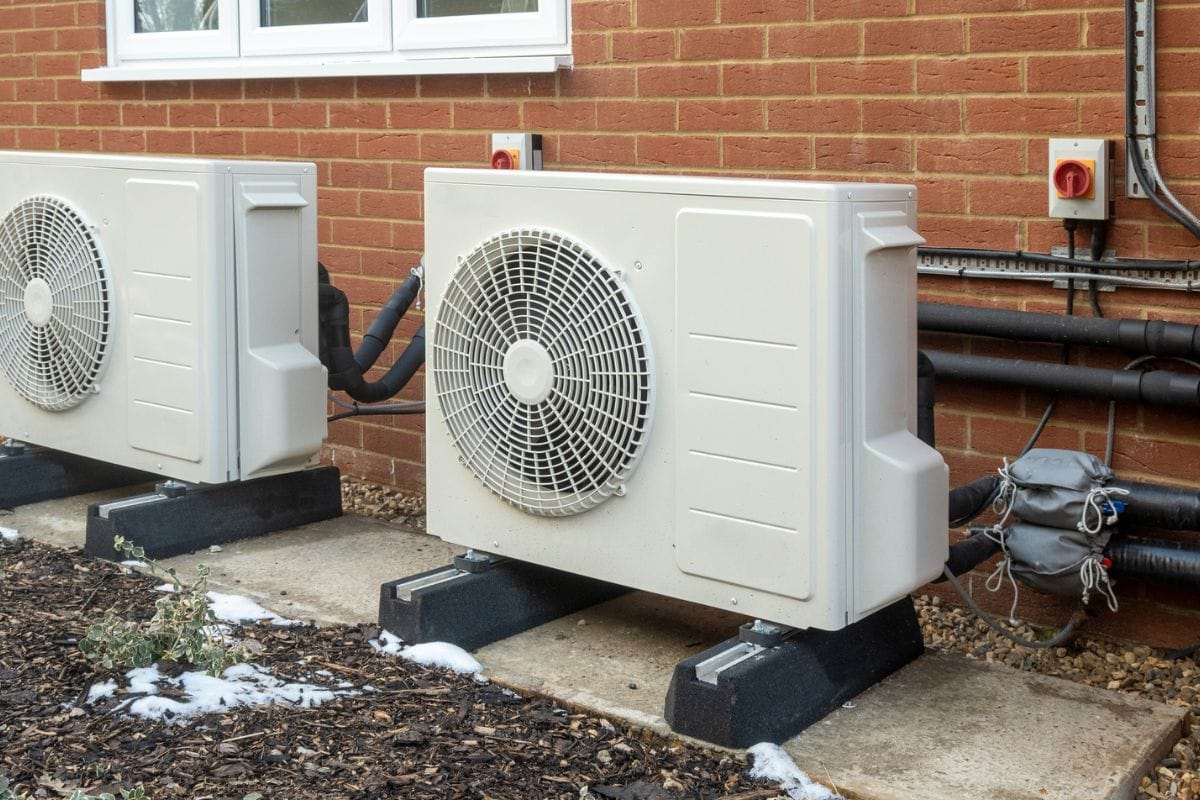
Maintaining The Unit
Like other heating and cooling systems, regular maintenance is important for the longevity of your heat pump. You should have your heat pump serviced at least once a year by a professional.
During this service, the technician will inspect and clean the unit as well as lubricate all moving parts. This will help to keep your system running smoothly and prevent any major issues from arising.
In addition, you should keep the area around your heat pump clear of any debris or obstructions. This includes leaves, branches, and even snow in the winter. If you live in an area with a lot of trees, you may want to have the unit serviced more often to prevent any debris buildup.
It's also important to change your air filter regularly. A dirty air filter can impede airflow and cause your system to work harder, which can lead to premature wear and tear.
Generally speaking, you should change your air filter every one to three months. However, if you have pets or someone in your home with allergies, you may need to change it more often.
Size Is Important
When shopping for a heat pump, it's important to get the right size for your home. If the unit is too small, it will have to work overtime to heat or cool your home, which can lead to premature wear and tear.
On the other hand, if the unit is too big, it will cycle on and off more often, which can also lead to problems. In addition, a unit that's too big for your home will be less efficient and will end up costing you more money in the long run. Not to mention, short cycling is hard on the motor and can shorten its lifespan.
It's best to have a professional come to your home to help you choose the right size heat pump for your needs. They will take into account the square footage of your home, the climate, and other factors.
Choose A Quality Unit
You have probably heard the saying, "you get what you pay for." This is definitely true when it comes to heat pumps.
The initial cost of a quality heat pump may be higher than a lower-quality model, but it will save you money in the long run. A quality heat pump will be more efficient and will last longer, so it's worth the investment.
When shopping for a heat pump, look for a model that has good reviews and comes from a reputable brand. Doing your research ahead of time will help you choose a unit that's right for your home and your budget.
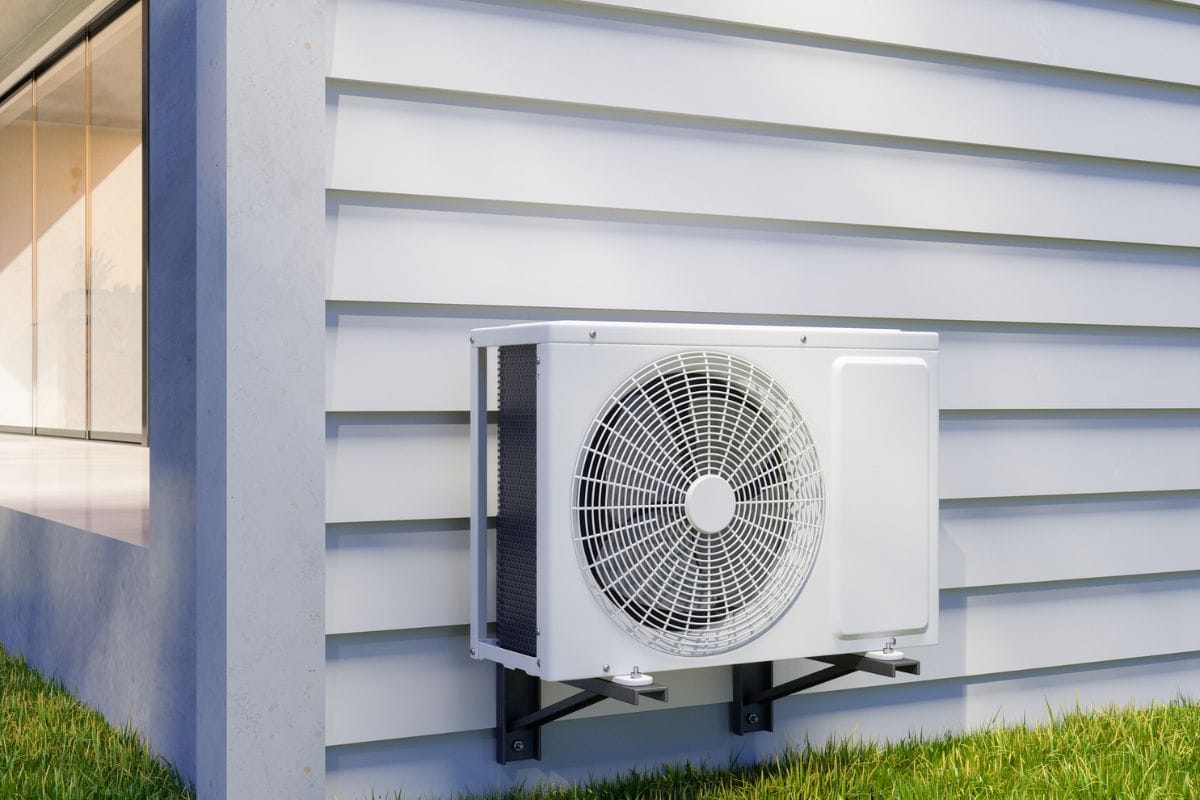
Work With A Professional
Installing a heat pump is not a do-it-yourself job. This is a complex system, so it's best to leave it to the professionals.
A professional will know how to properly size and install your heat pump, which is important for both performance and efficiency. They will also be able to troubleshoot any issues that may arise and make sure your unit is running smoothly.
In addition, have a professional do the repairs when needed. Doing it yourself may void your warranty, and it could also cause further damage to the unit.
Thermostat Settings
You can help prolong the lifespan of your heat pump by making sure you use it correctly. One way to do this is to be mindful of your thermostat settings.
In other words, when you are away from home, program your thermostat to higher or lower settings depending on the season. This will help to prevent your unit from working overtime when no one is home to enjoy the benefits.
In addition, try to keep your thermostat set at a consistent temperature. Frequent changes can put stress on your heat pump and shorten its lifespan.
Also, avoid completely turning off your heat pump. This can cause the unit to overwork itself when you turn it back on, which can lead to problems.
Clean The Ducts
Like the heat pump's air filter, the ductwork can also become clogged with dust and debris. This can impede airflow and cause your system to work harder than it needs to.
You should have your ducts cleaned every three to five years to prevent this from happening. A professional will be able to clean your ducts quickly and efficiently, so you can enjoy the benefits of a well-running heat pump.
Don't Neglect Repairs
Lastly, if you notice any problems with your heat pump, don't ignore them. It's important to have repairs done as soon as possible to prevent further damage.
Putting off repairs will only make the problem worse and will end up costing you more money in the long run. In addition, neglecting repairs can shorten the lifespan of your heat pump.
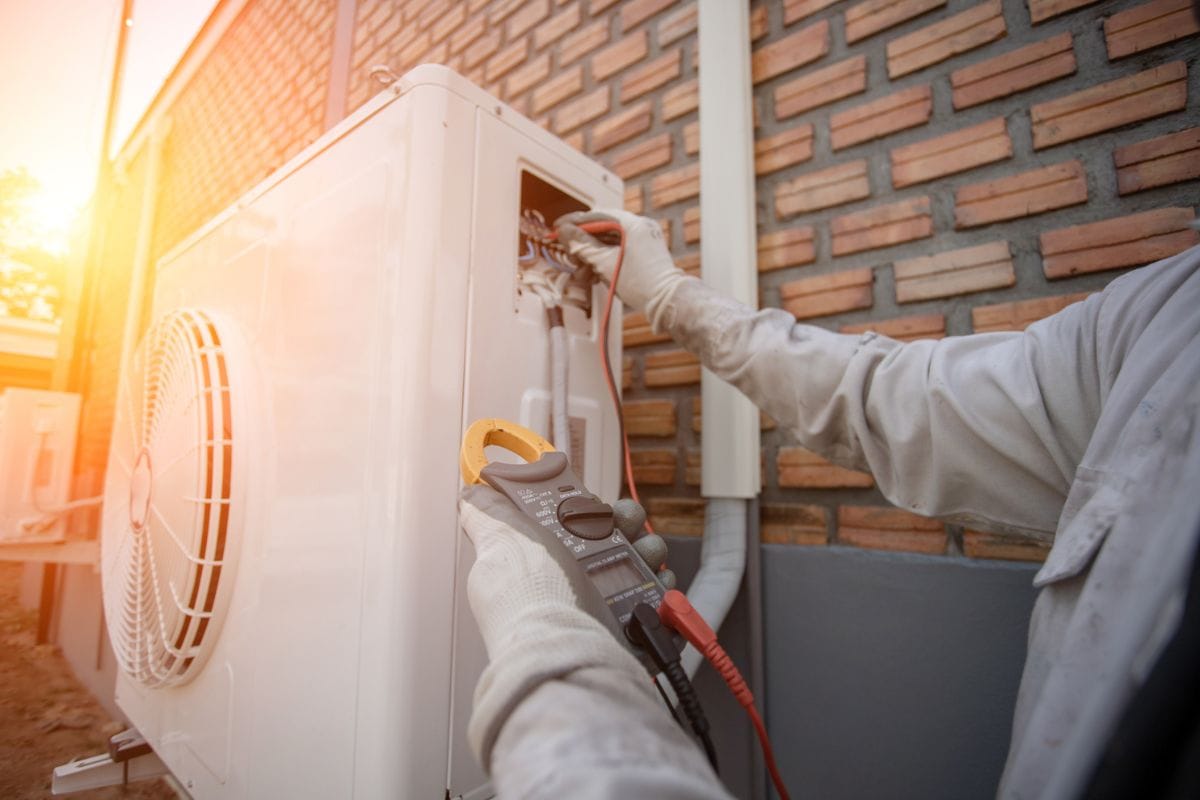
How Much Is A Heat Pump For A House?
Depending on the size of your home, you can expect to pay $4,000-8,000 or more for a heat pump. The price will also vary depending on the type of heat pump you choose.
However, in the long run, a heat pump can save you a lot of money on your energy bills. So, even though the initial cost may be high, it's worth the investment.
When Should I Replace My Heat Pump?
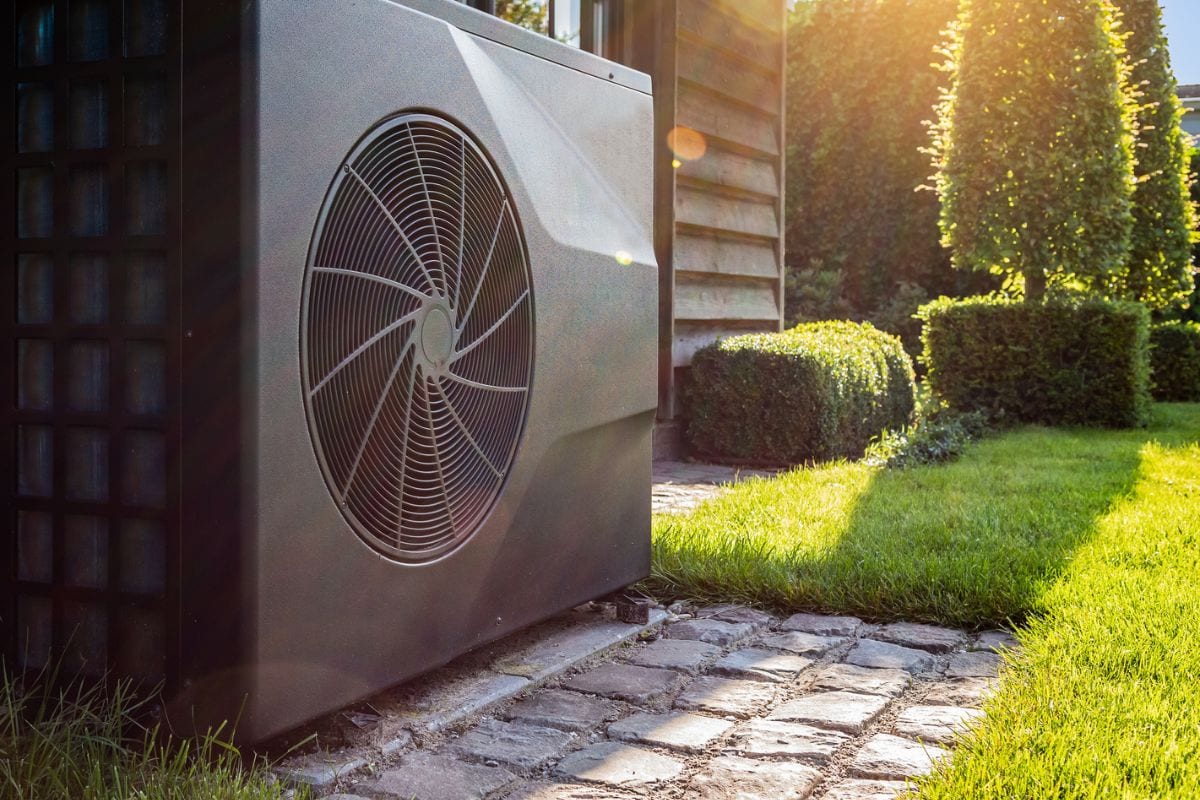
As we mentioned, a heat pump on average will last 10-20 years. However, there are a few signs that you should look out for that indicate it's time for a replacement, such as:
- Your energy bills are increasing even though you haven't changed your thermostat settings.
- Your heat pump is making strange noises.
- There is water pooling around your heat pump.
- Your heat pump isn't providing enough heat or cooling.
- The heat pump constantly needs repairs.
If you notice any of these signs and your heat pump is older than 10 years, it's probably time for a replacement. If you are unsure, then have a professional take a look at your heat pump to get an expert opinion.
Final Thoughts
Overall, Flordia residents can benefit greatly from installing a heat pump in their homes. Not only will it keep you comfortable all year round but it will also save you money on your energy bills. Lastly, with the right maintenance plan, you can enjoy your heat pump for many years to come.
Made it to the end? Here are other articles you might find helpful:
How To Tell If Your Heat Pump Has Auxiliary Heat
Heat Pump Efficiency Vs. Temperature – How Do The Two Relate?
